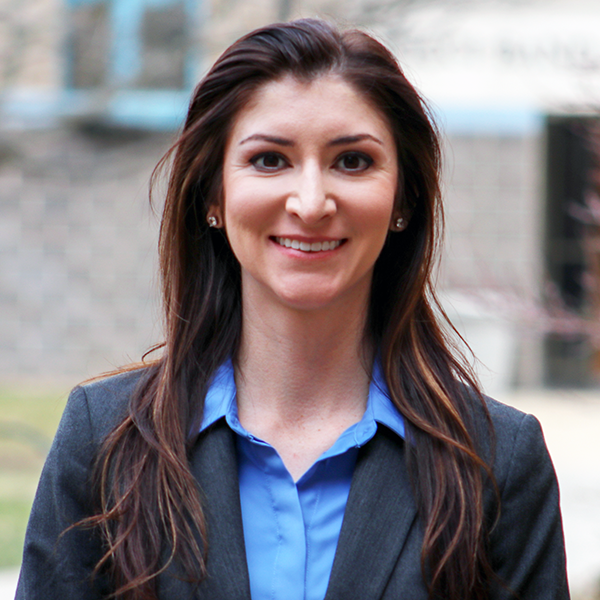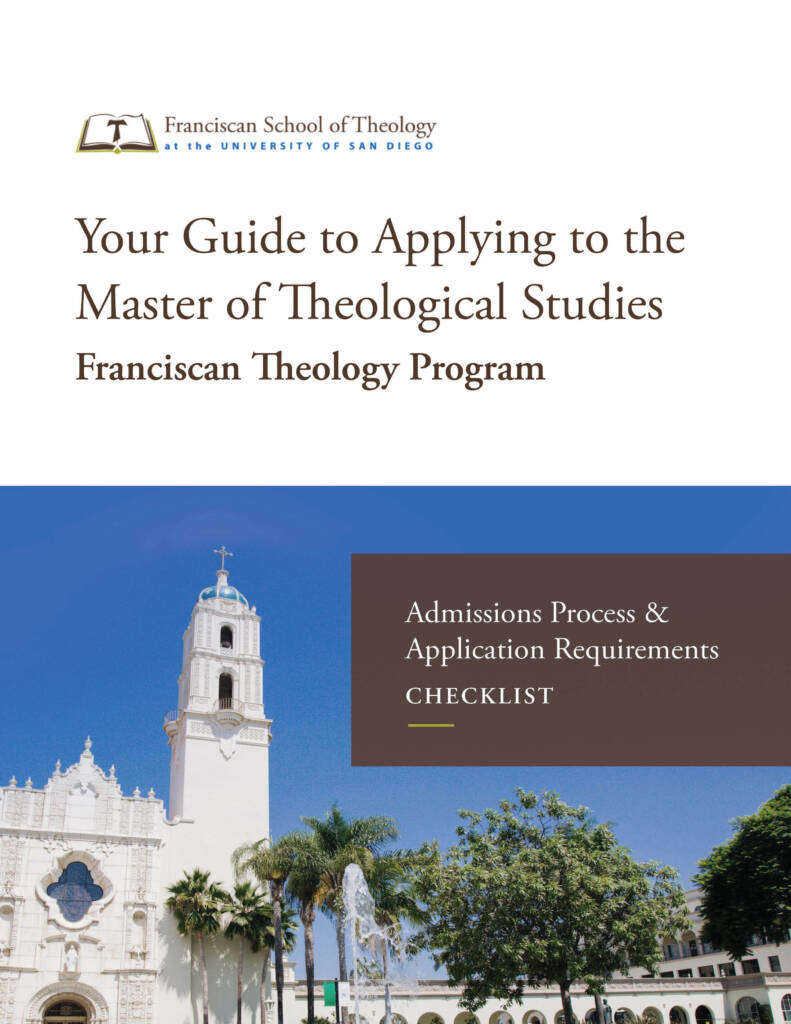Scholars of theology dedicate their lives to pondering questions of divinity, human existence, and morality, often by studying religious texts and the works of theologians throughout history. They may do so as part of their profession — for example, if they are a clergy member, religious researcher, or university professor — or they may study the Bible and theology as part of an academic program.
To anyone unfamiliar, biblical studies and theological studies may sound like the same thing — but these two disciplines, though related, can be distinct from one another. “Theological studies” is a broad term that includes a number of different approaches, including biblical studies. “Biblical studies” can be a way of studying theology, or at least the theology of an ancient text.
While biblical studies and theological studies involve deciphering ancient texts and grappling with existential questions, each employs unique methodologies and can serve distinct purposes. Together, they enrich our understanding of humanity and the divine.
What Is Biblical Studies?
Biblical studies is an academic discipline that focuses on the critical examination and interpretation of the Bible, the sacred scripture of Judaism and Christianity. It encompasses a wide range of scholarly approaches including historical, literary, cultural, linguistic, archaeological, and theological methods of study. The goal of biblical studies is to understand the historical context, literary genres, authorship, and theological themes present in biblical texts.
Students in theological graduate programs often pursue biblical studies as a way to understand the origins of sacred Scripture, and therefore the origins of Judaism and Christianity. Scholars study the Bible through the lens of history, literature, linguistics, and sociology, sometimes learning languages such as Biblical Hebrew or Ancient Greek to truly understand the sacred text in its original language. These scholars will examine passages in depth and ask questions such as:
- What did the writer mean when they wrote this passage?
- How would the writer’s contemporaries have received this text?
- How have various groups interpreted this text throughout history?
- What can we learn about Christianity and/or Judaism from this text?
It’s important to make a distinction between biblical studies and Bible studies — the two are not the same. Biblical studies is an academic pursuit that employs critical methodologies to analyze the Bible as a historical and literary document. Bible studies explores the meaning and application of biblical passages for faith and daily life, in service of nurturing personal or communal spiritual growth.
Another primary difference is context: Biblical studies is an academic discipline that appeals to scholars, theologians, clergy, and students in universities, seminaries, and research institutions. Bible studies, on the other hand, are intended for a broader audience including laypeople, church members, and individuals seeking spiritual enrichment and deeper understanding of the Bible’s teachings. They are typically conducted in a religious or community setting, often in churches or study circles.
What Is Theology?
Theology is a broad academic discipline that examines the nature of God, religious beliefs, and doctrines, as well as their implications on faith, practice, and understanding of the world. Theological studies often involve philosophical inquiry, critical reflection, and systematic analysis of religious texts, traditions, and experiences from within a specific religious tradition such as Catholicism or other Christian denominations.
While biblical studies focuses primarily on the critical examination and interpretation of the Bible, theological studies encompass a wider range of texts, traditions, and doctrines, looking for the connections between them. Theologians attempt to take the existing work of scholars — who perhaps engaged in biblical studies — and put it into theoretical frameworks. Theological masters degree students may also undertake biblical studies as part of their curriculum.
If biblical studies scholars are considered “religious scientists,” theological scholars may be considered “religious philosophers.” While studying various religious texts and literature, theological scholars might ask:
- What do these texts and authors contribute to our understanding of who God is?
- How can humans be in good relationship with God?
- What is God’s will for humanity and creation?
- What happens after we die?
- In what way does sin affect the human condition and our relationship with God?
Theological scholars may focus on the works of one historical writer or theologian, studying how they experienced faith and made sense of the world around them.
What Theology Is Not
Understanding what theology is not helps to delineate its boundaries and distinguish it from other disciplines. Theology is not:
- Religious studies: Religious studies is a secular academic discipline that examines multiple religions by focusing on their historical development, cultural expressions, rituals, and impact on society. Theology, by contrast, is framed by a specific religious tradition and involves establishing claims about divine reality, revelation, and salvation.
- Catechesis: Catechesis is a form of religious instruction or education intended for followers, especially children, adolescents, or newcomers. It teaches the basic principles and beliefs of a particular religious tradition for the purpose of spiritual formation and religious observation.
- Apologetics: Theology focuses on understanding and interpreting religious traditions, whereas apologetics seeks to defend and promote the fundamentals of those traditions through reasoned arguments and evidence.
- Dogma or creed: Theology does not seek to make prescriptive or incontrovertible statements about faith. Critical theological inquiry may lead to refinement, reinterpretation, or even rejection of certain dogmas or creeds within a religious tradition, but it is not a vehicle for establishing or enforcing them.
- Personal opinion: While theology involves interpretation and reflection on matters of faith, it is grounded in rigorous academic inquiry, critical reflection, and engagement with religious texts, traditions, and teachings, rather than personal beliefs.
While theology may intersect with other areas of study, it maintains its unique focus on understanding the nature of God, religious beliefs, and their implications within specific religious traditions.
In this short video, Father Michael Blastic, OFM, Ph.D., explains the relationship between catechesis, apologetics, and theology.
Theological Specializations
There are many subcategories within theology that scholars may wish to focus on, depending on their specific interests or professional goals. A few examples are:
- Systematic theology: This specialization explores the core beliefs and doctrines of a particular religion, providing explanations and interpretations of foundational teachings. It aims to deepen an understanding of what a faith community believes about God, salvation, creation, and other central theological concepts.
- Moral theology: Moral theology focuses on ethical principles and guidelines within a religious context. It addresses questions about what is considered right and wrong behavior according to religious teachings, and how individuals should live their lives in accordance with these moral standards.
- Pastoral theology: This practical branch of theology examines the applied aspects of religious ministry and care within a community. It provides guidance on how clergy and laypeople can effectively nurture others’ spiritual well-being, offer support during life transitions, and address pastoral concerns within a congregation.
- Ascetical theology: Inspired by ascetic religious devotees — those who, like Saint Francis of Assisi, give up worldly goods to focus on their faith — ascetical theology focuses on spiritual discipline and growth, emphasizing practices that lead to deeper intimacy with the divine. It explores methods of prayer, fasting, self-denial, and other spiritual exercises aimed at cultivating virtues and overcoming obstacles to spiritual maturity.
- Mystical theology: Mystical theology explores the mystical or experiential dimension of spirituality, investigating encounters with the divine that transcend ordinary understanding. It studies the nature of mystical experiences, the process of spiritual transformation, and the union of the individual soul with the divine presence.
Biblical Theology vs. Systematic Theology
Both biblical theology and systematic theology contribute to the study and interpretation of religious beliefs, but they do so from different perspectives and with different methodological emphases.
Biblical theology focuses on understanding the theological themes and messages within the Bible itself, examining individual books, passages, and narratives within their historical, cultural, and literary contexts. In essence, biblical theologians seek to make statements and develop conclusions only about scripture in and of itself.
In contrast, systematic theology seeks to organize and synthesize the teachings of a particular religious tradition into a coherent and comprehensive system of thought. Drawing upon various sources including Scripture, tradition, reason, and experience, systematic theologians construct an established understanding of God, creation, salvation, and other theological topics, aiming to provide a comprehensive and internally consistent framework for understanding the core doctrines and beliefs of a faith community.
Comparing Biblical Studies and Theological Studies
It can be difficult to parse the differences and similarities between biblical studies and theological studies, since they share much in common. However, there are distinct differences in their focus, scope, and application.
| Aspect | Biblical Studies | Theological Studies |
| Focus | Focuses specifically on the critical study of the Bible | Examines broader religious beliefs and doctrines from within a specific tradition |
| Scope | Primarily concerns the interpretation and analysis of biblical texts | Addresses theological questions and issues across various disciplines and sources |
| Methodology | Utilizes historical, literary, cultural, and textual sources | Draws upon various sources including Scripture, tradition, reason, and experience |
| Application | Analyzes historical context, authorship, and dissemination of biblical texts to promote understanding | Explores theological concepts, ethics, and philosophical questions to produce new conclusions |
| Audience | Appeals to historians, theologians, clergy, adherents, teachers, and students | |
| Languages | Often involves learning biblical languages such as Greek, Hebrew, and Aramaic | May not require learning biblical languages |
| Sub-disciplines | Encompasses sub-disciplines such as textual criticism, historical criticism, and literary analysis of the Bible | Includes disciplines such as biblical studies, history, anthropology, ethics, pastoral ministry, literature, art, music, philosophy, etc. |
Earn Your Master of Theological Studies
Biblical scholars and scholars of other types of theology can always conduct independent research in pursuit of clearer understanding. However, many elect to enroll in structured programs such as a Master of Theological Studies program, in which they engage in academic research and discussion about interpretations of religious doctrine and Scripture.
In contrast to academic biblical studies, theological studies present a greater variety of academic and professional opportunities. Many people who study theology apply their learning to a wide range of careers, including (but not limited to):
- Education: Elementary, secondary, religious, catechetical, etc.
- Ministry: Community, campus, camp, etc.
- Counseling: Grief, crisis, spiritual, etc.
- Chaplaincy: Settings include the military, healthcare, end-of-life care, mental health, etc.
Even if faith is not an active part of someone’s professional life, studying theology can help them understand ways to apply it in the workplace.
The online Master of Theological Studies – Fransciscan Theology (MTS-FT) program from the University of San Diego includes some traditional biblical studies, but largely focuses on practical applications of theology from a Franciscan Catholic perspective. Based on the teachings and writings of St. Francis and St. Clare of Assisi, Franciscan theology promotes active service and a love of all creation. It urges Franciscans to live out their faith in tangible ways and look for evidence of the divine in the material world.
In the course of the MTS-FT program, students study Scripture, tradition, and responses to the Catholic faith over the centuries, engaging in rigorous discussion on topics that include morality, social justice, human rights, environmentalism, gender equality, and much more. Students learn about the application of Franciscan theology in daily life throughout history, and how historical developments inform the interplay between religion and present-day society.
For more about this unique, 100% online theology master’s degree, read the program overview or reach out to an enrollment advisor today.




![What is Theological Studies? [+ Degree Comparison]](https://onlinedegrees.sandiego.edu/wp-content/uploads/2022/01/what-is-theological-studies.jpg)
